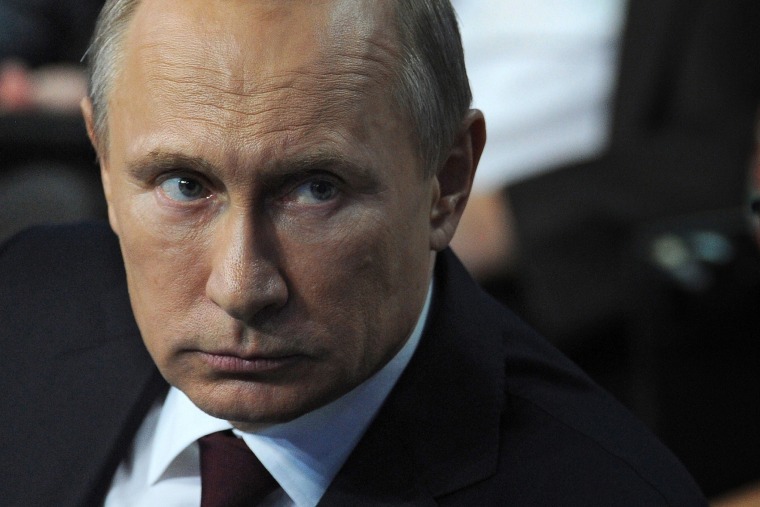The International Monetary Fund estimates that Russia's economy has already entered recession. Last year, Russia's economy grew 1.3 percent, its weakest rate in the past 13 years with the exception of 2009, when the country suffered in the global downturn. The growth slowed further this year as investors pulled money out of the county amid concerns over Russia's policy in Ukraine. The head of the IMF mission in Russia, Antonio Spilimbergo, told reporters Wednesday that Russia is already in recession as fears of broad economic sanctions weigh on the economy.
Russian stocks fell 10% last month, wiping out further billions in capital. The ruble has lost 9% of its value since the start of the year, boosting prices for the imported food and manufactured goods on which the Russian consumer market is heavily dependent. "The acute international situation of the past two months" was the cause, Ulyukayev said, referring to the Ukraine unrest.
While the annexation of Crimea has rocketed President Vladimir V. Putin's approval rating to more than 80 percent, it has also contributed to a sobering downturn in Russia's economy, which was in trouble even before the West imposed sanctions. With inflation rising, growth stagnating, the ruble and stock market plunging, and billions in capital fleeing the country for safety, the economy is teetering on the edge of recession, as the country's minister of economic development acknowledged on Wednesday. Mr. Putin, who just lavished $50 billion on the Sochi Olympics, also must now absorb the costs of integrating Crimea, which economists and other experts say has its own sickly economy and expensive infrastructure needs. The economic costs have been masked by recent patriotic fervor but could soon haunt the Kremlin, as prices rise, wages stall and consumer confidence erodes.
